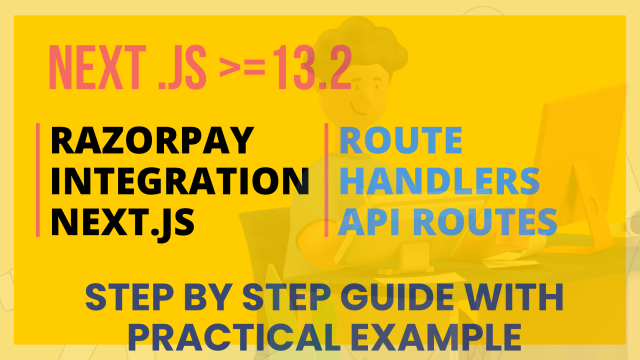Python Fast Api With Mysql Connector : Crud Operations.
- Posted on September 11, 2023
- Technology
- By MmantraTech
- 828 Views
FastAPI stands as an advanced Python web framework tailored for crafting APIs, spotlighting speed, user-friendliness, and the automatic validation of request and response data. Engineered for high-performance, it emerges as the ultimate choice for those seeking both swiftness and dependability in their applications. If you need seamlessly integrating a MySQL database into your FastAPI application, then you landed to right Article. This article serves as your guiding beacon, illuminating the path to connecting your FastAPI application with a MySQL database. Embark on this curiosity with me as I lay down the steps and offer illustrative practical Code which will save your time as well.
-Swz8oyhRAS.png)
Before delving into the intricate details, it's essential to ensure you have the following prerequisites in place:
- - Python (version 3.7 or higher)
- - FastAPI (Install using: `pip install fastapi`)
- - Uvicorn (ASGI server, Install using: `pip install uvicorn`)
- - MySQL Connector (Install using: `pip install mysql-connector-python`)
Furthermore, make sure you have access to a MySQL database server with the requisite credentials. I have taken below table for this article.
CREATE TABLE `employees` (
`id` int(11) NOT NULL,
`name` varchar(20) DEFAULT NULL,
`email` varchar(20) DEFAULT NULL,
`mobile` varchar(20) DEFAULT NULL,
`status` enum('1','0') NOT NULL DEFAULT '1'
) ENGINE=InnoDB DEFAULT CHARSET=utf8mb4 COLLATE=utf8mb4_general_ci;
Let's do practical
STEP #1:
Create a file "Connection.py" and past below code.
import mysql.connector
class DB_Connection:
def __init__(self):
self.connection = None
def connect(self):
self.connection = mysql.connector.connect(
host="localhost",
user="root",
password="",
database="fastapi"
)
def disconnect(self):
if self.connection:
self.connection.close()
db = DB_Connection()
STEP #2:
Create a file "mysql_fastapi" and past below code.
from fastapi import FastAPI, HTTPException,Body
from Connection import db
app = FastAPI()
@app.on_event("startup")
async def startup():
print("Connected")
db.connect()
@app.on_event("shutdown")
async def shutdown():
print("DisConnected")
db.disconnect()
@app.get("/getEmployeesList")
async def getEmployeesList():
cursor = db.connection.cursor()
cursor.execute("SELECT * from employees")
result = cursor.fetchall()
return {"result":result}
#by ID
@app.get("/getEmployeesList/{id}")
async def getEmployeesList():
cursor = db.connection.cursor()
cursor.execute("SELECT * from employees where id={id}")
result = cursor.fetchone()
return {"result":result}
@app.post("/SaveData", status_code=201)
async def SaveData(name:str=Body(...),email:str=Body(...),mobile:str=Body(...)):
cursor = db.connection.cursor()
query = "INSERT INTO employees (name,email,mobile) VALUES (%s, %s,%s)"
values = (name,email,mobile)
cursor.execute(query, values)
db.connection.commit()
return {"message": "Data Saved Successfully"}
@app.post("/updateData/{id}", status_code=201)
async def SaveData(name:str=Body(...),email:str=Body(...),mobile:str=Body(...)):
cursor = db.connection.cursor()
query = "UPDATE employees set name=%s,email=%s,mobile=%s) where id={id}"
values = (name,email,mobile)
cursor.execute(query, values)
db.connection.commit()
return {"message": "Data Updated Successfully"}
@app.post("/deleteEmployee/{id}", status_code=201)
async def SaveData():
cursor = db.connection.cursor()
query = "DELETE TABLE employees where id={id}"
cursor.execute(query)
db.connection.commit()
return {"message": "Employee Deleted Successfully"}
Above code brings below distinct endpoints:
NOTE : http://127.0.0.1:8000/ => Change Base URL as per your configuration
- Endpoint (`/getEmployeesList`) : Fetch All Employee List
- Endpoint (`/getEmployeesList/{id}`) : Get Employee Details by ID
- Endpoint (`/SaveData`) : Insert Employee Informaton into Database
- Endpoint (`/updateData/{id}`) : Edit Employee details by ID
- Endpoint (`/deleteEmployee/{id}`) : Edit Employee details by ID
STEP #3:
To set your FastAPI application in motion ( Start UviCorn Server ), execute the following command in your terminal:
uvicorn mysql_fastapi:app --reloadYour Server will run on port 8000 ( you can change it as well )
STEP #4:
Execute EndPoints in Postman
Get All Employee List
Save Employee Data
Get Employee Details by Id
Update Employee Data By ID
Delete Employee Data By ID
In Conclusion, FastAPI emerges as great Python Framework to build Resful APIs. I hope you understood the idea about Fast API and its usage with MySql.




-B5NkeCU476.png)
Write a Response